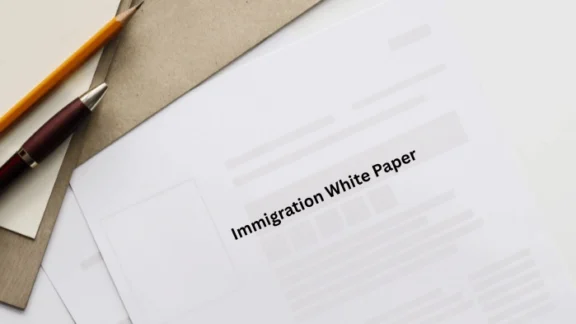If you are a student visa or tier 4 visa holder who is due to or has recently given birth in the UK, you and your baby can lawfully stay in the UK. However, even if your child is born in the UK, they will not automatically become a British national. In addition, they will only be eligible for free NHS healthcare for the first three months of their life. This is why, while it is not mandatory, applying for a child-dependant visa for your baby may be highly beneficial. Doing so will avoid immigration complications allowing them to freely travel to and from the UK and provide access to the NHS for your baby.
When it comes to pregnancy during your stay in the UK, there may be additional considerations to bear in mind. Foreign parents on other visa types (e.g. Skilled Worker / Tier 2 visa holders) will need to make arrangements with their employer to have time off work with their newborn and to ensure their work visa remains valid. In addition, immigration complications may arise if you and your newborn baby return to your home country to visit family and wish to return together. In this case, you may need to prepare and submit a child dependant visa application from outside the UK. If there are any mistakes on your visa application, this can cause unwanted delays resulting in you and your child to be separated for a period of time or validity issues with your UK work visa.
Child dependant visa requirements for a newborn baby in the UK
To apply for a child dependant visa under the family migration pathway, you must be:
- a full-time student on a postgraduate level course (RQF level 7 or above) that lasts 9 months or longer, or
- a new government-sponsored student on a course that lasts longer than 6 months, or
- a Doctorate Extension Scheme student
You will also need sufficient funds to support your child in the UK (only if you have been in the UK for less than 12 months):
- £845 a month (for up to 9 months) for courses in London, or
- £680 a month (for up to 9 months) for courses outside London
Note these funds must have been held for at least 28 consecutive days.
Your child must:
- be under the age of 18 on the date of application
- not be married or in a civil partnership
- not have formed an independent family unit
- not be leading an independent life
In addition to the above requirements, to apply for a dependent visa for a newborn baby in the UK, one of the following must apply:
- your child must have both parents in the UK
- both the child’s parents are applying at the same time as the child
- one parent has sole responsibility for the child’s upbringing
- the other parent has died
How to apply visa for a baby born in the UK
To apply for a visa for a newborn baby in the UK (referred to as a child dependant visa), you will need to complete the following steps:
- Prepare and submit the online child dependant visa application form – the form you need to complete depends on whether you are applying outside1 or inside the UK2.
- Pay the application fee
- Pay the healthcare surcharge
- Book and attend an appointment at a UKVCAS service point to provide biometrics (photo and fingerprints)
- Upload any documents required by UKVI to support the application, including:
- Passports of both parents showing valid UK student visas
- Biometric residence permits of both parents
- Child’s birth certificate showing the names of both parents
- Letter confirming sole responsibility or custody, if required
- Evidence of suitable accommodation in the UK (e.g. tenancy agreement and property details).
- Evidence of sufficient funds to support your baby while in the UK (i.e. bank statements or letter from an overseas sponsor confirming that funds are available)
The above steps apply no matter what type of UK points-based system visa you hold, for example, if applying for a newborn baby visa as Tier 2 or Tier 4 parents.
If you are a student visa holder, you will also need to provide a letter from your university confirming you are a full-time student on a postgraduate level course (RQF level 7 or above) that lasts 9 months or longer, or a new government-sponsored student on a course that lasts longer than 6 months, or a Doctorate Extension Scheme student.
British citizenship for baby born in the UK
A child born in the UK will not automatically receive British citizenship. The citizenship of a UK born child will depend on the citizenship of their parents. For example, if both parents are British citizens, then the child will automatically become a British citizen. This is also the case if just one parent is a British citizen.
If a child is born in the UK to non British parents but at least one parent is settled in the UK, you can register your child as a British citizen. ‘Settled’ means that one parent must have acquired permanent residency in the form of Indefinite Leave to Remain (ILR) or Settled Status through the EU Settled Status Scheme.
If your child is a British citizen, you may be qualified to apply for the UK parent visa.
References
1 GOV.UK: Applying for a visa outside the UK
2 GOV.UK: Applying for visa inside the UK





